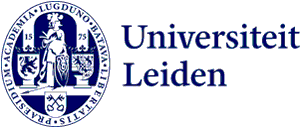
CfP: Ethical regimes. Doctors, patients and ethics in colonial and postcolonial medicine
We are pleased to announce a call for papers for a conference focused on ethical practices in medical research and treatment in the colonial and postcolonial context.
Conference date: 22 and 23 January 2026
Venue: Boerhaave Museum, Leiden
Abstract submission deadline: 1 November 2025
Organizers: Fenneke Sysling and Caroline Schep
Keynote by Professor Projit Mukharji
This conference seeks to explore the ethical practices of medical professionals conducting research in diverse colonial and postcolonial settings, and the role of their patients and subjects. This call invites scholars from a variety of disciplines—including history, anthropology, medical ethics, and (post)colonial studies—to contribute their research and insights.
European colonies and countries within a western sphere of influence were critical sites for the development of modern medical science. This means that they were also places where medical experimentation and treatment took place, and colonial medical research left a legacy of profound ethical concerns. Among the best-known cases now widely regarded as unethical are the Guatemala syphilis experiments or the experimental treatment of Africans for sleeping sickness. However, not all colonial medical practices were equally harmful, and some reveal the complicated relationship between high-risk experimentation and efforts to provide the best possible treatments for patients.
In the post-World War II and postcolonial era, ethical practices were increasingly formalized in codes of conduct. Before that time they were more often shaped by informal ideas and tacit practices, yet this does not mean they cannot be studied. In this conference, we aim to discuss the various ways in which these ideas and practices can be approached. How did medical and ethical practices differ (if they did) between the motherland and the colony? How did medical professionals describe and justify the risks they took? We welcome papers, for example, that explore specific scandals, analyze newspaper coverage, investigate the language of virtue and vice in medical discourse, and examine resistance and refusals of subjects.
One focus in this conference is on the concept of ‘ethical regimes’, introduced by Radin and Kowel (2015). Their ethical regime is not a normative concept that separates ethical from unethical regimes but describes the entirety of structures and values that govern ethical decisions. How did colonial politics, social hierarchies, and professional cultures influence ethical decision-making in medical research? What roles did religious beliefs, local customs, and imperial ideologies play? We are particularly interested in how ethical regimes varied across different sites, colonies, institutes, disciplines, or individuals.
A second focus of this conference is on patients, subjects and intermediaries. What ‘troubling encounters’ took place between doctors and patients? How can we recover patient perspectives? What role did intermediaries play? What motivated people to participate in experiments? How was consent obtained or organized? Did subjects voice dissent in religious, cultural or psychological terms? What options were available for them to resist?
We welcome papers on any region and on any field of biomedicine, and on any period from the 17th to the 20th century.
Topics of interest include, but are not limited to:
- Colonial medical experimentation on local populations (e.g., vaccines, treatments for tropical diseases, forced medical procedures, the introduction of new drugs)
- The role of specific sites: the missionary hospital, the plantation, jails, leprosy asylums, etc.
- Ethical regimes. Can certain medical practices be explained because of their specific ethical regime: their national, colonial, disciplinary, social, political context?
- The ways in which medical knowledge was impacted by specific ethical practices or resistance
- Differences and similarities. Were Western soldiers treated the same way as subjects in the colonies?
- Change and continuity: how did colonial practices influence the postcolonial era? What changes did postcolonial generations of medical scientists make?
- Ethics on the move: what happened to their ethical practices when medical scientists traveled from the West to the (post)colonial world?
- The role of consent, coercion, refusal and resistance in colonial medical practices.
- Historiographical approaches to studying (post)colonial medical ethics: How can we study the history of medical ethics?
Submission guidelines
Abstracts (no longer than 300 words), accompanied by a 3 sentence biography, can be submitted to Fenneke Sysling (f.h.sysling@hum.leidenuniv.nl) and Caroline Schep (j.e.schep@hum.leidenuniv.nl). The deadline for submitting abstracts is 1 November 2025.
Travel and accommodation costs for selected speakers will be fully reimbursed.

This conference is part of the ERC-funded project COMET at the Institute for History at the University of Leiden. Please note that we are planning to create a special issue or edited volume about this topic. We will organize further (online) meetings to work on full papers after the conference.
